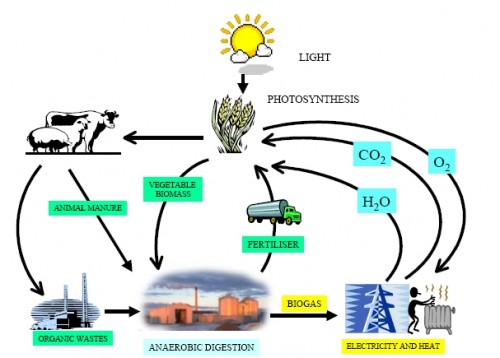GE Energy and energy developer ECOS Ltd. have announced they plan to demonstrate an innovative, industrial waste-heat recovery system that will dramatically increase the efficiency and output of a 7.2 megawatt (MW) biogas power plant in the eastern Slovenia town of Lendava, near the border with Hungary.
GE’s new pilot Organic Rankine Cycle (ORC) waste-heat recovery system for gas engines is designed to make onsite power plants that use natural gas, landfill gas and other waste gases (these can be made from a whole lot of stuff including poo) more cost-attractive to build as countries install more cogeneration and renewable energy capacity to enhance energy security and lower regional emissions.
The event was attended by a delegation of business leaders and government officials led by GE Chairman and CEO Jeffrey Immelt and Bavarian State Minister and Head of the Bavarian State Chancellery Horst Seehofer.
GE’s new ORC system will allow ECOS to capture more waste heat created by its 7.2 MW Bioplinarna Lendava biogas plant. The extra thermal power will be used to produce steam, which in turn will help generate enough electricity to support 300 European homes without using additional fuel.
“Our goal is to demonstrate that dramatic improvements in energy efficiency and output can be achieved in gas engine power plants through enhanced waste-heat recovery,†said ECOS Director and Owner Jože Pavlinjek. “We believe our collaboration with GE will help lead to the expanded use of cogeneration and renewable biogas solutions in support of European Union directives designed to improve regional energy security and combat global climate change.â€
The pilot ORC system will be installed on one of the three GE ecomagination-certified Jenbacher J420 biogas engines that have powered ECOS’ Bioplinarna Lendava plant since June 2008. The ORC technology will boost the Jenbacher unit’s electrical efficiency by an estimated five percentage points.
Landfill gas and other renewable biogas projects are among the prime candidates for ORC systems, especially in countries—including those in Europe—that offer high electricity feed-in tariffs.
“Countries around the world want to increase the use of renewable biofuels to meet their energy security and environmental requirements,†said Prady Iyyanki, CEO of GE’s Jenbacher gas engine business. “Pairing GE’s ‘ORC’ technology with gas engines represents an important innovation in energy efficiency, allowing existing and future onsite power plants around the world to generate extra electricity without consuming additional fuel or creating more emissions.â€
ORC systems generally offer enhanced energy efficiency by utilizing organic fluids that have lower boiling points than water to create steam for electricity generation. However, due to technical waste-heat recovery constraints, there had been few gas engine-based ORC applications.
GE’s new gas engine-ORC technology is a milestone for the global energy industry because for the first time, all of the waste heat from an engine’s exhaust gas and cooling cycle can be fully captured and utilized to drive the power plant’s enhanced steam-creation process.
The new technology was developed by GE’s Munich corporate research center and GE Energy’s Jenbacher gas engine business in Austria.
